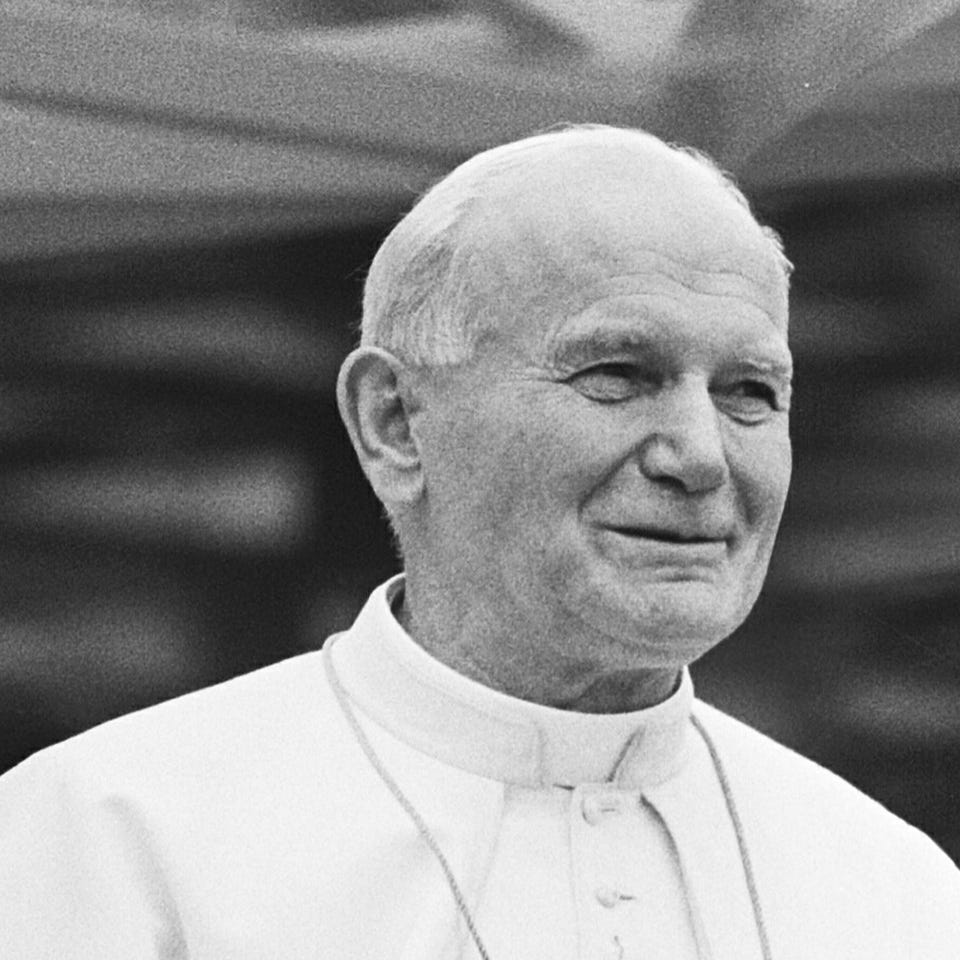The Gift of Peace
Excerpts from a Speech by John Paul II to University Students - March 1986
As we journey through Advent, may we enter into a deeper relationship with Jesus Christ and share his message of peace.
When man forgets his eternal destiny and the end of his life is limited to earthly existence, he is satisfied with a fictitious peace, with a purely external tranquility to which he asks to safeguard the highest degree of material well-being that can achieve with minimal effort.
In this way he builds an imperfect and unstable peace since it is not rooted in the dignity of the human person, made in the image and likeness of God and called to divine origin.
You will never have to settle for these substitutes for peace; it would be a serious mistake whose fruit would produce the most bitter of disillusionments. Jesus Christ announced it shortly before his ascension into heaven, when he said to his disciples: “Peace I leave with you, my peace I give you; and I do not give it to you as the world gives” (Jn 14:27).
There are therefore two types of peace: that which men are capable of building on their own, and that which is a gift from God; that which is based on a balance of forces, the laborious fruit of human agreements and compromises, and that which is, according to the expression of the Second Vatican Council, "the fruit of the order established in human society by its divine founder" (Gaudium et Spes, 78 ); the one that is imposed with the power of arms and the one that comes from the heart.
The former is fragile and insecure; it could be called a mere appearance of peace because it is based on fear and distrust. The second, on the contrary, is a strong and lasting peace because, founded on justice and love, it penetrates the heart; it is a gift that God grants to those who love his law (cf. Ps 119 (118), 165). The first deserves the name of armistice more than anything else; the second is a peace "which passes all understanding" (Phil 4:7) and, making men peaceful, converts them into suitable peacemakers.
Peace is therefore a gift, "a great benefit - as St. Augustine wrote - but a benefit from the true God, like the sun, like the rain and like so many other aids in life" (De Civitate Dei, III, 9). Therefore we must implore her day after day, with humility and perseverance, without pause, with a real clamor of prayers and works.
This desire for peace must not be confused with the passive acquiescence of those who limit themselves to wishing for it, but who do not commit themselves first of all to building it in their own lives. Peace, according to the classic Augustinian definition, is "tranquillitas ordinis" (De Civitate Dei, XIX,13), the tranquility that reigns where everything is placed in conformity with the right ordering willed by God.
This right balance can be achieved personally, and establish it in the reality that surrounds him, who does not observe this right order in his relationships with God and with others, closed in the armor of his own selfishness? At most, he will be able to achieve what Sacred Scripture calls "prosperity of the wicked" (Ps 72, 3), which is the apparent reward of sin: an ephemeral and epidermal peace that hides an unconditional surrender to the impulses of the threefold lust of which he speaks the apostle Saint John (cf. 1 Jn 2, 16)
The peace that the world is anxiously waiting for must be born from the heart of every man and woman as a ripe fruit of the Spirit (cf. Gal 5:22), when everyone collaborates with God's grace. It is a peace " given” and, at the same time, “conquered”. Therefore, paradoxically, it requires a constant struggle, a fight without respite against the sin that lurks in the human heart and pursues it with false promises, from which only the fruits of death derive.



